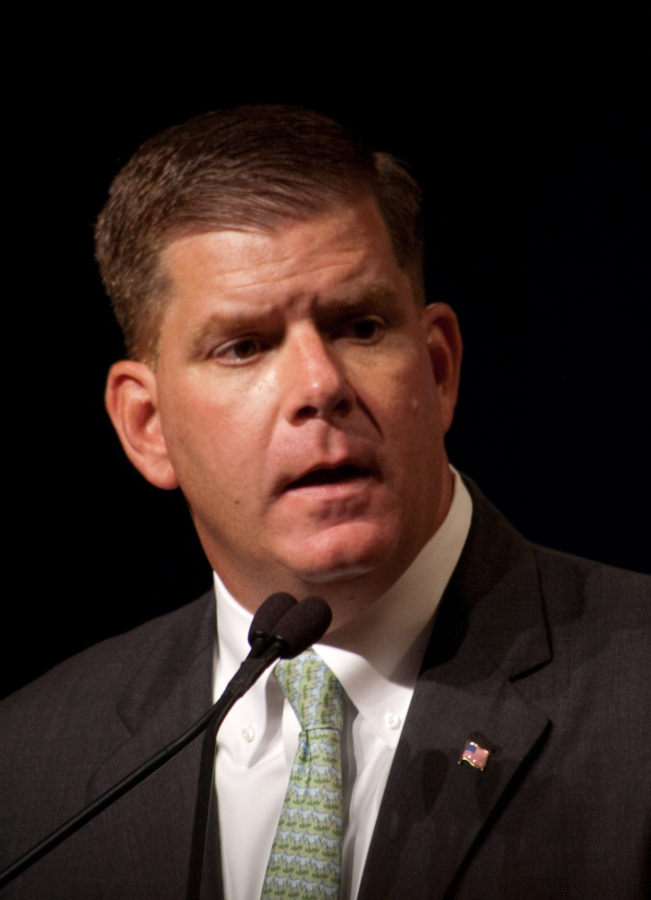As the upcoming mayoral elections inch closer, the candidates are getting serious and making their platforms known. Current Mayor Marty Walsh is one of these candidates.
Walsh is letting Bostonians know that if elected for a second term, he will continue what he started in his first term in office: furthering rapid housing developments. When driving around the city of Boston, the new housing developments are immediately apparent.
Mike Prokosch, a carpenter, is the head of the Boston Building Trades Council. This is the same position Mayor Walsh held before he became mayor. In an interview with WBUR on Sept. 29, Prokosch has this to say about Walsh’s plans:
“Marty is doing a good job of creating more housing.” He also added, “In fact, he’s doing better than the goals that he set, and that’s definitely a part of solving the affordability crisis.”
Back in 2014 during Mayor Walsh’s first term, he called for a multibillion dollar investment which included plans to build 53,000 new housing units by 2030. As of present, more than 40 percent of these units are either under construction, have been built, or were permitted to be built.
Even though Walsh has been getting positive feedback for all of his efforts in the area, Prokosch is not convinced that this rapidly increasing housing development will solve the housing problems in Boston. This, he notes, is because “developers are overwhelmingly building housing that is not affordable to most people in Boston.”
Since Walsh took office, rent in Boston has seen an increase from roughly $2,500 to $2,800. “We’re getting people with money and means moving into the city, and people of color, which is a majority of Boston, and lower-income jobs, getting pushed out,” said Prokosch.
“He’s making it easier for developers to come in and develop the housing we need, said Barry Bluestone, the Stearns Trustee Professor of Political Economy, the founding director of the Kitty and Michael Dukakis Center for Urban and Regional Policy, and the founding dean of the School of Public Policy & Urban Affairs at Northeastern University.
“Much of it has been at the luxury level, but there’s also been stuff at the low end. We now have to fight much harder for workforce housing, which is a difficult nut to crack, but he wants to approach that,” said Bluestone, who is also responsible for writing an annual housing report for The Boston Foundation.
Bluestone is not the only one concerned. Many Boston residents fear that condo buildings, which appear to be going up in most communities, will replace the older homes that give the neighborhoods their character.
Eileen Boyle, who knew Walsh since childhood, noted that these developments have been met with much dismay. She also criticizes Walsh for not engaging with the residents the way former Mayor Tom Menino used to. To this, Walsh contested, saying, “We listen to community groups; I think what we try to do is work with them to get to a point where people feel comfortable… I think for the most part, you need to work with the community.”





















































